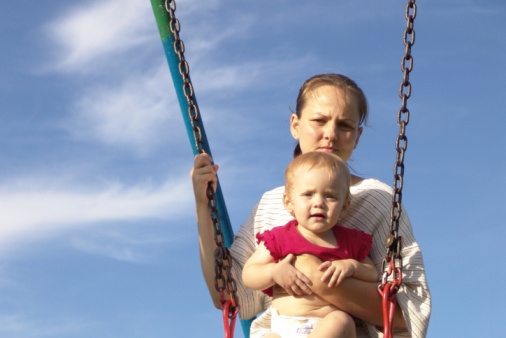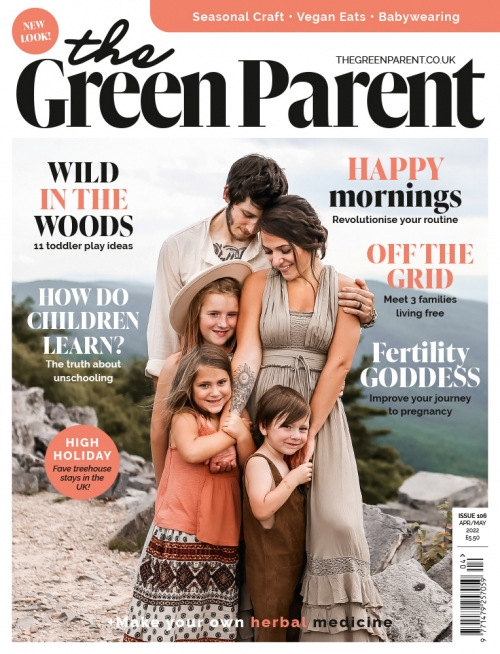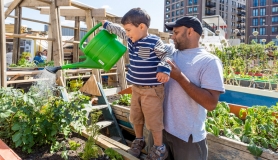I recently read the passionate and life-changing book Half the Sky – How to Change the World by Nicholas DS. Kristof and Sheryl WuDunn about the issues facing women worldwide, from trafficking to female genital mutilation, and what we can do about it. But what about women here in the UK? Would it be fair to say we can be incredibly blinkered about what’s happening on our own doorstep? During a training session on looked after children I attended recently, some of the literature we read about women’s lives here was shocking beyond belief. What was most shocking was that the lives we read about belong to women we see in the street, or chat to at the bus stop or playground, but we’re far more likely to read about women in refugee camps in Sudan than human rights violations in this country. While it’s vitally important we are involved in women’s rights abroad, we need to look after our own women too.
REAL ISSUES IN THE UK
Charlotte Gage studied Social Anthropology at university; her original dream was to focus on women’s rights on an international level. It wasn’t long before she changed her mind. “I felt that there were real issues for women here in the UK,” Charlotte remarks, “and that we can’t be complacent about that. The Government puts a lot of energy and PR into what they’re doing for women’s rights in other countries but there is not as much focus on vulnerable women at home.” Though most of us think of female genital mutilation as an issue facing women in developing countries, Charlotte points out that it’s happening in the UK. “There are dentists and GPs practising FGM illegally in this country. And forced marriage is another issue. I don’t think there should be a separation between what is happening abroad and what is happening in this country.”
Charlotte has worked as a policy officer for The Women’s Resource Centre for five years. An umbrella charity supporting UK-based women’s organisations, they offer training, information, resources and one-to-one support on a range of organisational development issues. The charity also lobbies decision makers on behalf of the women’s not-for-profit sector for improved representation and funding.
SUPPORT YOUR LOCAL WOMEN’S ORGANISATIONS
One of the Women’s Resource Centre’s main campaigns is to get people supporting their local women’s organisations. Charlotte explains; “The Government cuts have disproportionately affected women. NHS maternity services being shut down, Surestart closures, a lack of affordable childcare, cuts and changes in the benefits system and tax credits – all of these are having huge impacts on women.” Lack of funding and cuts are also affecting women offenders, women’s ESOL classes, women’s centres providing therapy and employment training, rape crisis centres and refuges.
What can you do to help? Charlotte recommends getting in touch with your local women’s organisation: “Talk to them, and ask them what you can do to help. Most organisations are in crisis because of funding cuts. They might need you to fundraise, raise awareness of their work, or volunteer. The key is to build up a dialogue so you that what you do is of real benefit. Join in on protests against the closure of your local women’s services, get involved with what’s happening for women in your area.”
KNOWLEDGE IS POWER
Charlotte’s work within the Women’s Resource Centre focuses on empowering women’s organisations. “Knowledge is power,” Charlotte states. “We do a lot of intensive one-to-one work with women’s organisations to give them the tools and confidence to go to their local authority and get their voices heard: to make change locally. We get networks of women who come to us feeling disempowered because they don’t understand the system or how to ‘speak the language’. Through working with us, they learn about the obligations of government and local government under International Human Rights Law and UK law. They know what their rights are. Sometimes it’s as simple as writing a letter referencing the right law, that’s enough to make local government sit up and take notice because they know what they’re talking about.”
Witnessing women’s organisations in a new state of empowerment makes Charlotte’s work “a job I love”. In July, she will be joining colleagues at the UN in Geneva to discuss how the UK Government is meeting the guidelines set out by CEDAW – the Convention on the Elimination of all forms of Discrimination Against Women. The UN will outline recommendations for UK action, and the Women’s Resource Centre and other organisations will be able to use them to lobby and campaign for real change.
FIND OUT MORE AND GET INVOLVED:
Convention on the Elimination of all forms of Discrimination Against Women (CEDAW) – the international women’s rights convention which the UK government has signed and is being examined on in Geneva in July.
Charlotte’s blog with entries from guest bloggers on specific issues, including women in UK prisons, FGM, and the portrayal of women in the media
Women’s Resource Centre website
False Economy – Get involved with local campaigns against cuts
Women’s Aid has a list of just some of the women’s rights campaigning organisations to get you started
UK Feminista – a movement of ordinary men and women campaigning for gender equality. Find out more about campaigning locally.
Books worth reading:
Half the Sky: How to Change the World
Because I am A Girl
Seven authors have visited seven different countries and spoken to young women and girls about their lives, struggles and hopes. The result is an extraordinary collection of writings about prejudice, abuse, and neglect, but also about courage, resilience and changing attitudes.
Created Equal: Voices on Women’s Rights







